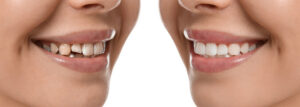Naturopathic Medicine is a distinctive system of health care that blends age-old healing traditions with scientific advances. It recognizes the body’s innate healing power and emphasizes disease prevention.

NDs will perform comprehensive patient assessments that include a medical history, family issues and diet, exercise and lifestyle choices. They may also use iridology, tongue and nail analysis, physical exams and laboratory testing. Contact Dr. Anne Berkeley PLLC for professional help.
When it comes to healthcare, the first principle is “first do no harm.” This is a fundamental part of the Hippocratic Oath and it is a core value of Naturopathic Medicine. As such, naturopathic doctors (NDs) prioritize customized approaches that focus on whole-person wellness over more invasive treatments like drugs and surgery. In addition, naturopathic modalities focus on minimizing the amount of force used in treatment, which can reduce side effects and improve results.
The NDs view symptoms as the body’s way of communicating an imbalance. They use a variety of modalities, including clinical nutrition, acupuncture, homeopathy, botanical medicine and physical medicine to treat the patient. They also encourage patients to take responsibility for their health and a healthy lifestyle.
A naturopath believes that good health is the result of a harmonious interaction of many factors, including the physical, mental and emotional. They believe that spiritual health is a vital component of total well-being and encourage individuals to pursue their own personal spiritual development. As a result, naturopaths strive to address each of these factors in the course of treating a patient.
NDs follow the Hippocratic Oath by not only practicing first do no harm but also taking the patient’s values and needs into consideration. This includes addressing the patient’s social and emotional needs, and understanding that there is more than one disease process.
In addition, naturopathic physicians make sure that any dietary changes they recommend do not cause any nutritional deficiencies. They may also ask the patient to tell them about any medications or supplements they are currently using, as some of these can interact with conventional treatments.
Prevention of disease
NDs are trained to look at the whole person and address the underlying cause of disease. This includes addressing the patient’s diet, lifestyle, emotional and spiritual health. It’s important for a naturopath to encourage the patient to take responsibility for their health and make changes that will promote wellness.
Naturopaths are particularly effective at primary prevention, the first step in blocking disease from taking root. The Latin word for doctor, docere, means “to teach.” And that’s the core of the naturopath’s role: to educate patients and motivate them to take control of their health by changing their attitude, lifestyle and diet.
For example, naturopaths are expert in identifying and managing the risk factors for cardiovascular disease. They can help patients reduce their blood pressure, cholesterol and weight, quit smoking or use physical activity to manage stress. By reducing the risk of cardiovascular disease, naturopaths can dramatically cut healthcare costs and improve patient health.
A naturopath may also prescribe dietary supplements. These can include vitamins, minerals, amino acids and enzymes, and are typically recommended to supplement other treatments or support certain conditions. Studies have shown that nutritional supplements can prevent disease and reduce the need for costly interventions, like surgeries and medications.
When it comes to secondary prevention, naturopaths are also good at identifying and eliminating cancer-promoting conditions. They can identify and reduce inflammation, blood sugar abnormalities, hormonal imbalances and inflammatory foods that contribute to cancer development. And they can improve the effectiveness of other secondary prevention tools, such as mammograms and colonoscopies. In fact, naturopaths can be more effective at primary and secondary prevention than physicians. That’s why it’s critical that we fight scope creep and keep naturopaths at the forefront of health care.
Healing the whole person
When a person becomes ill, naturopaths take the time to get to know their patients and understand what is going on inside of them. This allows naturopaths to treat the whole person and ensure that their symptoms are managed effectively without causing further harm. In addition, naturopaths also believe that the body can heal itself and they strive to encourage this process.
While naturopaths may not be trained as primary care doctors, they have four years of education and training to diagnose and treat health problems like bloodstream infections. This is significantly less than what physicians receive. For example, hematologists, endocrinologists, and rheumatologists have between eight and 10 years of medical education and training. This makes naturopaths insufficient for the treatment of complex diseases such as autoimmune disorders and heart disease.
In naturopathic medicine, the body is seen as a whole and all the parts must be treated in order to maintain optimal health. NDs consider the patient’s lifestyle, genetic predispositions, environmental influences, and emotional well-being when creating treatment plans. This holistic approach enables them to identify and address the root cause of a person’s health concerns, which leads to long-lasting results.
Another important aspect of naturopathic medicine is the emphasis on preventive care. This is a major difference from conventional medicine, which often focuses on managing symptoms rather than treating the underlying causes of disease. By addressing the root cause of illness, naturopathic doctors can prevent disease from recurring or manifesting in new ways, which reduces overall healthcare costs.
In order to promote health and wellness, naturopathic doctors use a variety of healing modalities including hydrotherapy, herbal medicine, homeopathy, physical medicine, and more. They also encourage healthy living by recommending dietary changes, stress management techniques, and exercise routines.
Addiction recovery
Addiction recovery is a long journey that includes addressing underlying issues. People with substance use disorders often have a co-occurring mental illness. It is important to address both conditions during addiction treatment, as they work together and reinforce each other. A holistic approach to treatment can help people break free from the addiction cycle and live a full life.
The first step in the addiction recovery process is to stop using drugs. This is challenging for many people, especially if they are used to feeling numb or disconnected. Some may also experience withdrawal, which can range from irritability and shakiness to nausea and delirium. It is also helpful to remove triggers and avoid people and places that can cause relapse.
Naturopathic doctors are trained to identify and address emotional problems. They can offer a variety of holistic therapies, such as massage therapy, acupuncture and herbal remedies. They can also provide nutritional counseling and support detoxification. They may also recommend a combination of modalities, including mindfulness-based meditation and yoga.
Regular exercise is also a part of the naturopathic addiction recovery process. It helps people feel physically and emotionally good. It can boost energy levels, release endorphins, and reduce anxiety and stress. It can also improve sleep and promote a healthy weight. It is also helpful to spend time with family and friends.
During the recovery process, it is important to be patient and remember that change takes time. Some people may need a few months to reach a stable level of sobriety, but it is possible to achieve lasting results with a holistic treatment approach. It is important to stay away from drugs and alcohol, and to surround yourself with positive people.
Last resort
The concept of last resort is a crucial one in Naturopathic Medicine. It means that a doctor should only use medical procedures and medications as a last resort, not a first option. This approach is more humane than treating a patient as an object and putting them through the pain and suffering of surgery or other invasive treatment methods. This approach also helps patients take more responsibility for their health and encourages them to seek alternative remedies to conventional medical treatments.
This is an important aspect of naturopathy that is often overlooked in modern-day medicine. It’s common for doctors to only investigate the cause of a disease once it’s reached an advanced stage and symptoms are pronounced, often in the hopes that it will improve quality of life. While this can be a necessary and life-saving measure, it is not the only way to treat an illness.
A naturopath will try to help patients find solutions that are less invasive and more effective than traditional medicines. They’ll take into account a patient’s overall physical, mental, emotional and social well-being, including their spirituality. They’ll also encourage personal growth and development as part of a holistic healthcare program.
Naturopaths also believe in the principle of “first do no harm.” This means that they will only recommend treatments that are safe, have few side effects, and are non-toxic. They’ll also avoid using any medication that can interfere with the body’s natural healing process. These principles are important for patients to know, as they will help them make informed decisions about their health. For example, if a patient suffers from stress, a naturopath will consider their past and current stressors. They’ll then try to get to the root of the problem and decrease stress levels.
